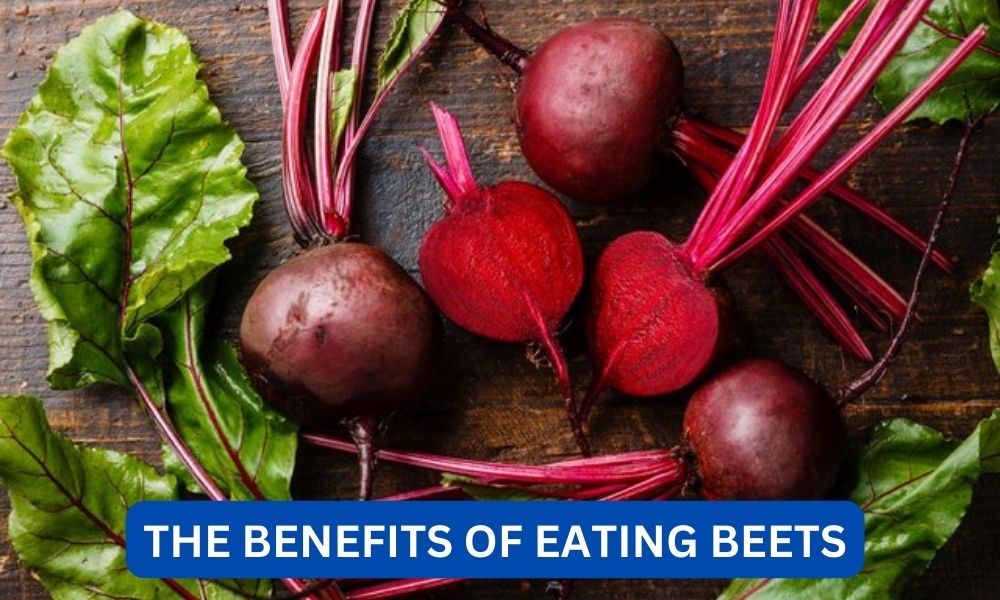Beets, also known as beetroot, are a root vegetable that have been consumed for centuries for their numerous health benefits. They have a distinct deep red color and a sweet, earthy flavor that makes them a versatile ingredient in various dishes. But aside from being a delicious addition to meals, beets are also packed with essential nutrients and compounds that can improve overall health and well-being. In this article, we will delve into the benefits of eating beets and why you should consider adding them to your diet.
Contents
Nutritional Profile of Beets
Beets are often referred to as a superfood because of their impressive nutritional profile. They are low in calories but high in essential vitamins, minerals, and antioxidants. Here is a breakdown of the nutrients found in one cup (136 grams) of cooked beets:
- Calories: 58
- Carbohydrates: 13 grams
- Fiber: 4 grams
- Protein: 2 grams
- Fat: 0.2 grams
- Vitamin C: 11% of the Daily Value (DV)
- Folate: 37% of the DV
- Potassium: 9% of the DV
- Manganese: 8% of the DV
- Magnesium: 6% of the DV
- Iron: 4% of the DV
Beets are also a good source of other essential vitamins and minerals, including vitamin B6, phosphorus, and copper. They are also rich in antioxidants, such as betalains and betacyanins, which give beets their vibrant color.
Read:what are the health benefits of turmericHealth Benefits of Eating Beets
Beets have been used for medicinal purposes for centuries, and modern research has confirmed their numerous health benefits. Here are some of the top benefits of adding beets to your diet:
1. May Lower Blood Pressure
High blood pressure, also known as hypertension, is a common health problem that can increase the risk of heart disease and stroke. Studies have shown that beets may help lower blood pressure due to their high nitrate content. Nitrates are converted into nitric oxide in the body, which helps relax and widen blood vessels, leading to lower blood pressure.
In a study published in the American Heart Association journal, researchers found that drinking one cup of beetroot juice daily for four weeks significantly lowered blood pressure in participants with hypertension. Another study also showed that consuming beetroot juice improved blood pressure in healthy adults.
2. May Improve Athletic Performance
Beets are a popular supplement among athletes and fitness enthusiasts due to their potential to improve athletic performance. This is because beets are rich in nitrates, which can increase blood flow and oxygen delivery to muscles, leading to improved endurance and performance.
Read:What are the two major benefits of a massage?In a study published in the Journal of the Academy of Nutrition and Dietetics, researchers found that consuming beetroot juice before exercise improved running performance in healthy adults. Another study also showed that beetroot juice improved cycling performance in trained cyclists.
3. May Boost Brain Health
Beets contain a compound called betaine, which has been linked to improved brain function and cognitive performance. Betaine is also known to reduce inflammation and protect against oxidative stress, both of which can contribute to age-related cognitive decline.
In a study published in the Journal of Nutrition, researchers found that consuming beetroot juice improved cognitive function in older adults. Another study also showed that beetroot juice improved reaction time and decision-making in healthy adults.
4. May Help Fight Inflammation
Chronic inflammation is linked to various health problems, including heart disease, cancer, and autoimmune disorders. Beets contain betalains, which have potent anti-inflammatory properties. These compounds can help reduce inflammation and protect against chronic diseases.
In a study published in the Journal of Agricultural and Food Chemistry, researchers found that betalains from beets reduced inflammation in human cells. Another study also showed that beetroot extract reduced inflammation in rats with liver disease.
Read:What are the benefits of eating your placenta?5. May Support Digestive Health
Beets are a good source of fiber, which is essential for maintaining a healthy digestive system. Fiber helps promote regular bowel movements and can prevent constipation. It also feeds the beneficial bacteria in the gut, which can improve overall gut health.
In a study published in the Journal of Nutrition, researchers found that beetroot fiber improved digestive health in rats with constipation. Another study also showed that beetroot extract increased the growth of beneficial bacteria in the gut of mice.
How to Incorporate Beets into Your Diet
Beets are a versatile ingredient that can be enjoyed in various ways. Here are some ideas on how to incorporate beets into your diet:
- Roast beets in the oven and add them to salads or grain bowls.
- Blend beets into smoothies for a nutrient boost.
- Make a beetroot hummus dip for a healthy snack.
- Grate raw beets and add them to coleslaw or slaw salads.
- Sauté beet greens with garlic and olive oil for a nutritious side dish.
- Use beetroot powder as a natural food coloring in baked goods.
Potential Side Effects and Precautions
While beets are generally safe for consumption, there are a few precautions to keep in mind:
- Beets are high in oxalates, which can contribute to kidney stones in some individuals. If you have a history of kidney stones, it is best to limit your intake of beets.
- Beets may cause a temporary red or pink discoloration of urine and stool. This is harmless and is due to the presence of betalains in beets.
- Beets are high in sugar, so individuals with diabetes should monitor their intake and consult with a healthcare professional.
Conclusion:
Beets are a nutrient-dense superfood that can provide numerous health benefits. From lowering blood pressure to improving athletic performance and brain health, beets are a versatile and delicious addition to any diet. So why not give them a try and reap the benefits of this powerful root vegetable?
Remember to always consult with a healthcare professional before making any significant changes to your diet, especially if you have any underlying health conditions. With the right precautions, beets can be a valuable addition to a healthy and balanced diet.









